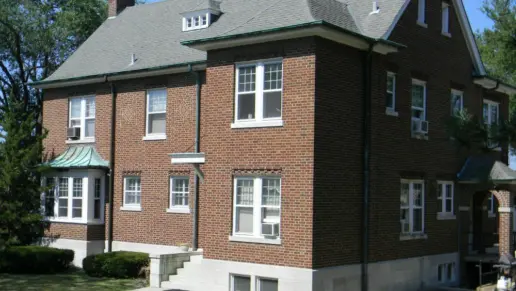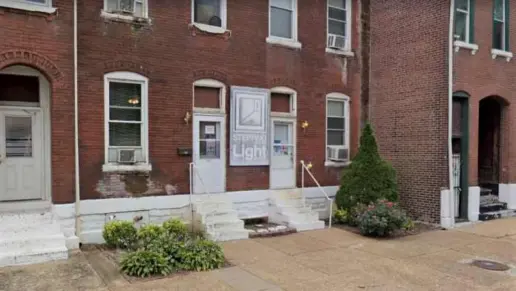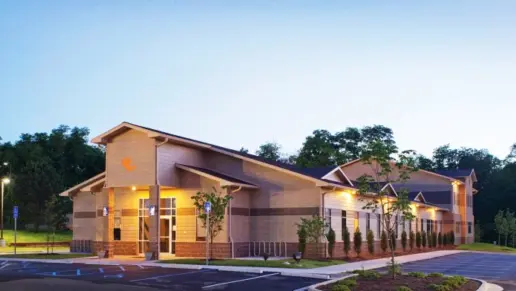When I googled Synergy, I knew it was the place for me to begin my recovery journey. From the moment I arrived & got acclimated, I felt at home. The staff is exceptional! They are gracious, welcoming, helpful, professional & fun. They encourage you & hold you accountable. An ...
About Synergy Recovery Center
Synergy Recovery Center in Rogersville, Missouri, offers treatment to women who are seeking to recover from drug and alcohol addictions. This also includes dual diagnosis cases that coincide with mental health conditions. These conditions can include depression, anxiety, bipolar disorder and PTSD.
They offer residential treatment to women and provide a plethora of services that really piqued my interest. Some of their modalities of care include cognitive behavioral therapy, EMDR therapy, and dialectical behavior therapy. You’ll also find individual therapy, group therapy and family counseling services.
Where it gets interesting is with their more holistic options. They offer grief and loss therapy, art therapy, music therapy, yoga, mindfulness meditation, somatic work, pilates, boxing, strength training and educational classes. This gives you so many opportunities to really learn about yourself and figure out what your interests are and how you can heal through any of these services.
Holistic treatment can really play a major role in your recovery journey, since it makes the healing process fun and rewarding. For instance, moving your body and keeping active through yoga and boxing is proven to reduce the urge to do drugs or drink, since it naturally reduces stress and triggers endorphins in a healthy way, giving you a more natural mood boost. They also have interactive self-esteem groups that are meant to elevate your feelings of self-worth and give you a healthier self-image that is more realistic and not harmful to your mood.
One other thing I love are their classes on attachment styles. This can play a crucial role in your relationships. Learning your attachment style can drastically improve your perception of certain relationships and help you avoid issues in the future.
Rehab Score
Gallery
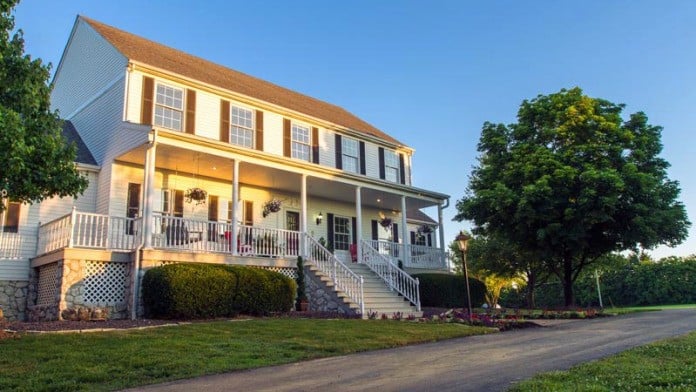

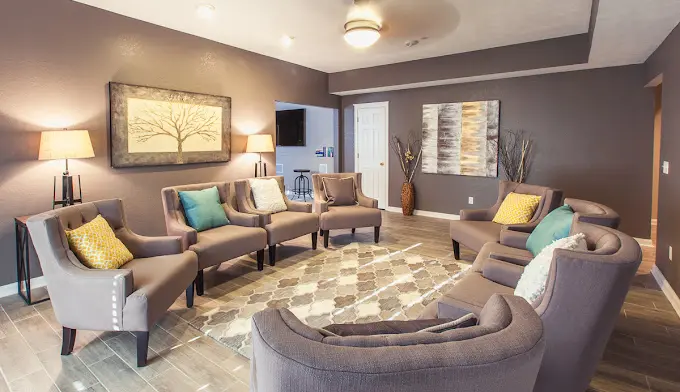



Location
Accepted Insurance
Other Forms of Payment
Private insurance refers to any kind of healthcare coverage that isn't from the state or federal government. This includes individual and family plans offered by an employer or purchased from the Insurance Marketplace. Every plan will have different requirements and out of pocket costs so be sure to get the full details before you start treatment.
Self-pay involves paying for treatment out of your own pocket. You can use savings or credit, get a personal loan, or receive help from family and friends to fund your treatment. If you don't have insurance or your insurance plan doesn't cover a specific program, self-pay can help ensure you still get the care you need.
Addiction Treatments
Levels of Care
Treatments
The goal of treatment for alcoholism is abstinence. Those with poor social support, poor motivation, or psychiatric disorders tend to relapse within a few years of treatment. For these people, success is measured by longer periods of abstinence, reduced use of alcohol, better health, and improved social functioning. Recovery and Maintenance are usually based on 12 step programs and AA meetings.
Drug rehab in Missouri usually involves several phases: detox, rehab, and aftercare. The rehab phase may include a combination of inpatient and outpatient treatments, as the individual moves through a continuum of care on their recovery journey.
Therapeutic process and interventions assist individuals in gaining a better understanding of how addiction and mental health interact, and the physical and emotional symptoms of co-occurring disorders linked to mood, trauma, adjustment, and personality that are often present in persons struggling with substance abuse.
A combined mental health and substance abuse rehab has the staff and resources available to handle individuals with both mental health and substance abuse issues. It can be challenging to determine where a specific symptom stems from (a mental health issue or an issue related to substance abuse), so mental health and substance abuse professionals are helpful in detangling symptoms and keeping treatment on track.
Opioid rehabs specialize in supporting those recovering from opioid addiction. They treat those suffering from addiction to illegal opioids like heroin, as well as prescription drugs like oxycodone. These centers typically combine both physical as well as mental and emotional support to help stop addiction. Physical support often includes medical detox and subsequent medical support (including medication), and mental support includes in-depth therapy to address the underlying causes of addiction.
Programs




Clinical Services
Cognitive Behavioral Therapy (CBT) is a therapy modality that focuses on the relationship between one's thoughts, feelings, and behaviors. It is used to establish and allow for healthy responses to thoughts and feelings (instead of unhealthy responses, like using drugs or alcohol). CBT has been proven effective for recovering addicts of all kinds, and is used to strengthen a patient's own self-awareness and ability to self-regulate. CBT allows individuals to monitor their own emotional state, become more adept at communicating with others, and manage stress without needing to engage in substance abuse.
Dialectical Behavior Therapy (DBT) is a modified form of Cognitive Behavioral Therapy (CBT), a treatment designed to help people understand and ultimately affect the relationship between their thoughts, feelings, and behaviors. DBT is often used for individuals who struggle with self-harm behaviors, such as self-mutilation (cutting) and suicidal thoughts, urges, or attempts. It has been proven clinically effective for those who struggle with out-of-control emotions and mental health illnesses like Borderline Personality Disorder.
Group therapy is any therapeutic work that happens in a group (not one-on-one). Therapeutic interaction among Therapist and up to 10 women designed to promote healthy client functioning and recovery through personal disclosure and interpersonal interaction within the group.
Therapeutic process directed at exploring the interrelationship between substance use and trauma and the impact of the trauma on an individual’s life and recovery. The process is directed at making sense of the traumatic experience and the feelings associated with it, and developing healthy coping skills to begin the healing process.
Couples therapy in Missouri deals with the problems each partner has within themselves and with each other. Sessions may be held jointly and others individually to address these issues and help each partner learn how to manage challenges in healthy ways.
Specialized psychological method that combines elements from several well established theoretical orientations combined with bilateral stimulation to treat emotional difficulties caused by disturbing life experiences and traumatic events. Primary goal is to eliminate distress and change related negative beliefs and behaviors associated with the trauma.
Consists of primary client and one or more family members with the intent of exploring family interaction patterns related to substance abuse and recovery, developing healthy skills and strategies to improve family functioning and encourage healthy interaction, and planning for stabilization and support for the client in recovery.
Life skills trainings involve all the skills a person must have in order to function successfully in the world. The Budgeting and Life Skills class addresses current habits and introduces healthy changes in the areas of money management, time management, basic problem solving, self-awareness and personal growth.
Therapeutic use of the creative process of art making to explore feelings, foster self-awareness, manage behavior and addictions, increase self esteem, and improve and enhance physical, mental, and emotional well-being. Evidenced based use of music interventions to address the physical, emotional, cognitive, and social needs of an individual. Utilizing music in a therapeutic context to provide an avenue for communication, self-expression, and motivation for change.
Nicotine Replacement Therapy (NRT) is a way of getting nicotine into the bloodstream without smoking. It uses products that supply low doses of nicotine to help people stop smoking. The goal of therapy is to cut down on cravings for nicotine and ease the symptoms of nicotine withdrawal.
Amenities
-
Gym
-
Yoga Studio
-
Private Rooms
Accreditations

The Substance Abuse and Mental Health Services Administration (SAMHSA) is a branch of the U.S. Department of Health and Human Services. Established in 1992 by congress, SAMHSA's mission is to reduce the impact of substance abuse and mental illness on American's communities.
SAMHSA Listed: Yes

The Joint Commission, formerly known as JCAHO, is a nonprofit organization that accredits rehab organizations and programs. Founded in 1951, the Joint Commision's mission is to improve the quality of patient care and demonstrating the quality of patient care.
Joint Commission Accreditation: Yes
Accreditation Number: 587756
Contact Information
3955 South Farm Road 223
Rogersville, MO 65742









